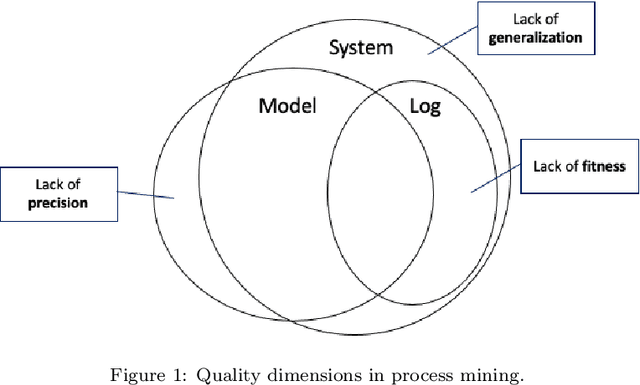Generalization in Automated Process Discovery: A Framework based on Event Log Patterns
Paper and Code
Mar 26, 2022



The importance of quality measures in process mining has increased. One of the key quality aspects, generalization, is concerned with measuring the degree of overfitting of a process model w.r.t. an event log, since the recorded behavior is just an example of the true behavior of the underlying business process. Existing generalization measures exhibit several shortcomings that severely hinder their applicability in practice. For example, they assume the event log fully fits the discovered process model, and cannot deal with large real-life event logs and complex process models. More significantly, current measures neglect generalizations for clear patterns that demand a certain construct in the model. For example, a repeating sequence in an event log should be generalized with a loop structure in the model. We address these shortcomings by proposing a framework of measures that generalize a set of patterns discovered from an event log with representative traces and check the corresponding control-flow structures in the process model via their trace alignment. We instantiate the framework with a generalization measure that uses tandem repeats to identify repetitive patterns that are compared to the loop structures and a concurrency oracle to identify concurrent patterns that are compared to the parallel structures of the process model. In an extensive qualitative and quantitative evaluation using 74 log-model pairs using against two baseline generalization measures, we show that the proposed generalization measure consistently ranks process models that fulfil the observed patterns with generalizing control-flow structures higher than those which do not, while the baseline measures disregard those patterns. Further, we show that our measure can be efficiently computed for datasets two orders of magnitude larger than the largest dataset the baseline generalization measures can handle.
 Add to Chrome
Add to Chrome Add to Firefox
Add to Firefox Add to Edge
Add to Edge